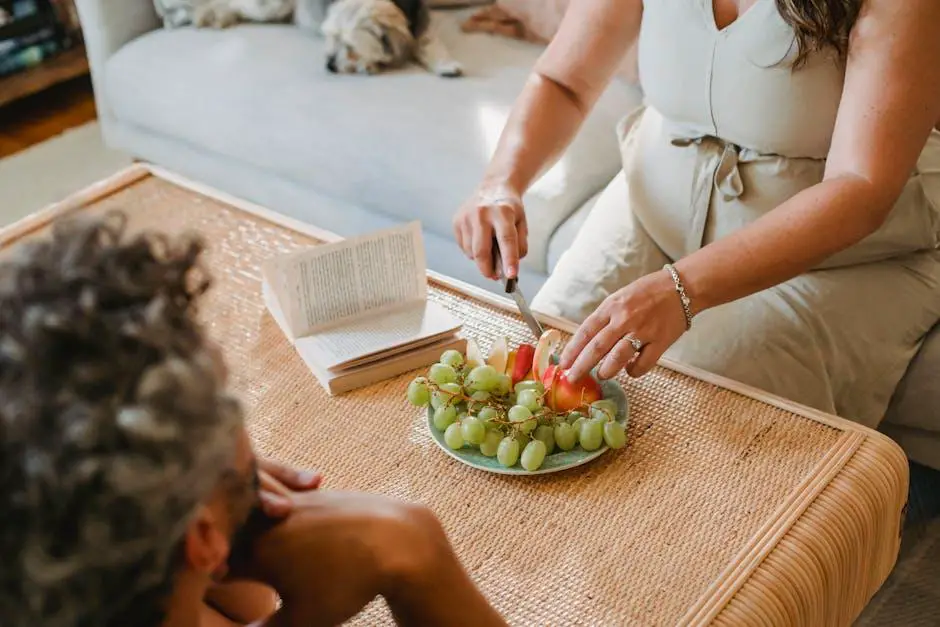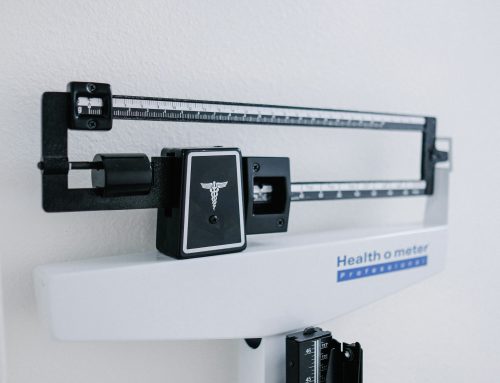Are you and your food in a toxic relationship? Do you find yourself constantly counting calories, obsessing over carbs, or sneaking late-night snacks behind your own back? It’s time to break up with dieting and start building a healthier relationship with food. Let’s dig into how you can stop playing mind games with your meals and start loving yourself, and your food, for who you truly are.
Contents
- 1 Understanding Your Relationship with Food
- 2 Identifying Destructive Eating Patterns
- 3 Exploring Mindful Eating Techniques
- 4 Cultivating a Positive Body Image
- 5 Practicing Intuitive Eating Strategies
- 6 Seeking Professional Help and Support
- 7 Creating a Sustainable Healthy Eating Plan
- 8 FAQs
- 9 —
- 10 In conclusion, let’s feast on the joy of food!
Understanding Your Relationship with Food
Ever feel like your relationship with food is more complicated than a soap opera love triangle? You’re not alone! Let’s dive into the juicy details of this tumultuous affair we call eating.
First off, take a moment to reflect on how food makes you feel. Are you comforted by a warm slice of pizza after a long day, or do you break out in a cold sweat at the thought of counting calories? Embrace those feelings, because they are the key to understanding your unique bond with food.
Next, consider how you interact with food on a daily basis. Are you a hopeless romantic, always seeking out the latest food trends and dining experiences? Or do you prefer a more casual fling, grabbing whatever is convenient and easy to eat on the go? Whether you’re a foodie at heart or just looking for a quick fix, embrace your preferences and own them!
Remember, it’s important to nurture a healthy relationship with food. Treat yourself with kindness and respect, whether that means indulging in your favorite treat or opting for a nutritious meal. Food should be enjoyed, not feared or restricted. So go ahead, savor every bite and embrace the delicious adventure that is your relationship with food!
Identifying Destructive Eating Patterns
Destructive eating patterns can sneak up on us when we least expect it. Whether it’s stress eating, mindless munching, or emotional binging, these habits can wreak havoc on our health and well-being. But fear not, for with a little self-awareness and the right tools, we can identify and combat these pesky patterns.
So, how do you know if you have a destructive eating pattern? Here are some signs to look out for:
- Constantly reaching for unhealthy snacks
- Eating mindlessly in front of the TV or computer
- Feeling guilty or ashamed after eating
- Using food as a coping mechanism for emotions
If any of these behaviors sound familiar, it’s time to take action! Start by keeping a food journal to track your eating habits and emotions. This can help you pinpoint triggers and patterns that lead to destructive eating. Additionally, try practicing mindful eating by savoring each bite and paying attention to hunger cues. Remember, awareness is the first step to breaking free from destructive eating patterns!

Exploring Mindful Eating Techniques
Ever find yourself mindlessly munching on Doritos while watching Netflix, only to realize you’ve polished off the entire bag without even tasting them? Time to shake up your snacking routine and delve into the world of mindful eating techniques!
First up, let’s try the savoring technique. Take a moment to admire the colors, textures, and smells of your food before diving in. Chew slowly and appreciate each bite, savoring the flavors dancing on your taste buds like a gourmet tango.
Next, let’s master the portion control technique. Instead of inhaling your meal in record time, pace yourself and listen to your body’s hunger cues. Maybe your stomach is full after half a sandwich, or perhaps you need seconds to feel satisfied. No judgment – just listen to your belly and honor its requests.
Finally, why not experiment with the intuitive eating technique? Forget calorie counting and strict diets – listen to your body’s cravings and eat when you’re hungry. Trust your gut (literally) to guide you in making healthy food choices without all the guilt and restrictions. Your body knows best!

Cultivating a Positive Body Image
So, you want to cultivate a positive body image? Well, grab your gardening tools and let’s get started!
First things first, throw out that magnifying mirror that shows every pore and imperfection. Instead, surround yourself with mirrors that make you look like a friggin’ supermodel. Who cares if they’re a little warped or covered in toothpaste splatters?
Next, start a daily gratitude journal where you list all the things you love about your body. Maybe it’s your strong legs that can kick butt in a Zumba class or your luscious locks that make Rapunzel jealous. Embrace what you’ve got, baby!
And lastly, remember that confidence is key. Strut your stuff like you’re walking the runway at Fashion Week, even if you’re just heading to the grocery store. Own it, flaunt it, and show the world that you’re a force to be reckoned with!

Practicing Intuitive Eating Strategies
So you’ve decided to give intuitive eating a try, huh? Good for you! It’s time to kick those restrictive diets to the curb and embrace a healthier relationship with food. Here are some strategies to get you started:
Listen to Your Body: Your body is like a wise old sage, constantly trying to communicate with you. Pay attention to hunger cues and eat when you’re truly hungry. And hey, if you’re not hungry, no need to force-feed yourself just because the clock says it’s lunchtime.
Cravings Aren’t the Enemy: It’s okay to crave that slice of cake or bag of chips every once in a while. Instead of fighting your cravings tooth and nail, allow yourself to enjoy them in moderation. Just remember, balance is key!
Enjoy the Eating Experience: Don’t rush through meals like you’re in a hot dog eating contest. Take your time, savor each bite, and really appreciate the flavors and textures of the food you’re eating. It’s not a race, after all!
Seeking Professional Help and Support
So, you’ve finally admitted that you need some professional help and support? Congratulations! You’re one step closer to getting your life back on track. Now, the next step is to actually seek out that help and support. Here are a few tips to help you along the way:
- Take a deep breath and remind yourself that it’s okay to ask for help. You’re not alone in this, and there are plenty of professionals out there who are trained to help you navigate whatever challenges you’re facing.
- Do some research and find a therapist, counselor, or support group that suits your needs. Don’t just settle for the first option that comes along – shop around and find someone who you feel comfortable opening up to.
- Remember that seeking professional help is a sign of strength, not weakness. It takes guts to confront your issues head on, and asking for help is a brave and courageous move.
So, don’t be afraid to reach out and ask for the help and support you need. You deserve to live a happy and fulfilling life, and sometimes that means enlisting the help of others. Trust me, you’ll feel so much better once you take that first step towards getting the professional help you need.
Creating a Sustainable Healthy Eating Plan
So, you’ve decided to jump on the healthy eating bandwagon and create a sustainable eating plan. Congratulations! Here are a few tips to help you stay on track while enjoying delicious, nutritious meals:
First things first, variety is key! Make sure to incorporate a wide range of fruits, vegetables, whole grains, lean proteins, and healthy fats into your diet. Mix it up to keep things interesting and prevent boredom.
Next, don’t forget to stay hydrated. Drink plenty of water throughout the day to keep your body functioning at its best and help curb those pesky cravings. It’s amazing what a difference staying hydrated can make!
Finally, don’t be too hard on yourself. Remember, it’s all about balance. Enjoy the occasional treat without guilt, and don’t be afraid to indulge in your favorite foods every now and then. Life is too short to not enjoy a slice of cake or a scoop of ice cream every once in a while!
FAQs
Why is it important to go beyond dieting when it comes to building a healthy relationship with food?
Well, let’s face it – dieting sucks. It’s like being in a toxic relationship with food. Instead of obsessing over calories and restrictions, focusing on building a healthy relationship with food means enjoying what you eat, listening to your body’s cues, and finding balance.
How can I start building a healthier relationship with food?
Start by ditching the diet mentality and embracing intuitive eating. Trust your body to guide you towards what it needs, whether it’s a salad or a slice of pizza. And remember, food is meant to be enjoyed, not feared!
What are some tips for practicing mindful eating?
Put down your phone, turn off the TV, and really savor each bite. Pay attention to how the food tastes, smells, and feels in your mouth. Mindful eating not only helps you appreciate your food more, but also allows you to tune into your body’s hunger and fullness cues.
How can I overcome emotional eating habits?
Emotional eating is like inviting a toxic ex back into your life – it may feel good in the moment, but it doesn’t solve anything. Find healthier ways to cope with emotions, like going for a walk, calling a friend, or journaling. And remember, it’s okay to indulge in your favorite treat every now and then!
What are some signs that indicate I have a healthy relationship with food?
You know you have a healthy relationship with food when you can enjoy a variety of foods without guilt or shame, listen to your body’s hunger and fullness cues, and view food as nourishment rather than an enemy. Basically, if you can eat a donut without spiraling into self-loathing, you’re on the right track!
—
In conclusion, let’s feast on the joy of food!
Thanks for joining us on this flavorful journey of building a healthy relationship with food that goes beyond fad diets and counting calories. Remember, food is not the enemy – it is meant to be savored, celebrated, and enjoyed. So, ditch the guilt trip and embrace a balanced approach to eating. Bon appétit!








Leave A Comment